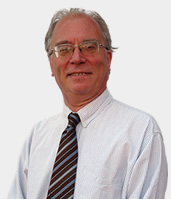Hart of the Matter
So the great British summer of sport has finally come to an end. At one stage it looked as if it would never finish and we would just go on winning everything.
Only our footballers and cricketers have kept us in touch with reality – and the cricketers were coming off a world-beating year in 2011.
The only epilogue to this triumphant saga still left to be decided is who will be the Sports Personality of the Year, in a year when any one of the astonishing achievements would normally have been enough to clinch it – the first Brit to win the Tour de France, the first Brit for 76 years to win a tennis major, the first European to humble the Kenyans and Ethiopians over long distance on the track for a couple of decades. The list goes on and on.
But now the Ryder Cup victory has provided a fitting curtain call, attention turns to what people blithely call the ‘Legacy’ of the Olympics, which is a bit like dark matter in that we can’t see it or touch it or measure it, but we just know it has to be there.
Even in little old Haverhill, the town council has been discussing the Legacy, as have St Edmundsbury Borough Council and Suffolk County Council.
In so far as anyone can come up with a definition of what it is, it appears to be a feeling that this one-off opportunity which we have paid so much for cannot be allowed to pass without resulting in some permanent benefit to all of us.
You could argue we have already had plenty of benefit – economically, they tell us, and in the form of a feelgood factor not to be underestimated at a time of financial gloom.
But these are transitory benefits. The Legacy seems to mean something lasting, maybe even life-changing, for all. As there is a general belief that sport is good for you, this has translated into a determination to get more people involved in it.
I have always had an ambivalent view of sport, probably because I was never any good at most of it. I couldn’t run very fast, jump very high or throw very far and my hand-eye co-ordination is not great. I used to enjoy one sport which was considered by most to be a form of torture – cross-country – and in my more mature years that has developed into a love of walking and climbing hills.
That’s a reasonably healthy, outdoor activity – at least it would be if there were enough hills around here to do it more than a couple of times a year – but it is only sporting to a very limited degree. It pits person against nature at a very mild level, a bit like a solo round of golf pits golfer against the course.
But just because I’m not that keen on taking part in sport, does not mean that I don’t like it. In fact, with the exception of football, rugby and motor-racing, which bore me rigid, I thoroughly enjoy watching all sports on TV.
It used to be just cricket, tennis, snooker and athletics, but in recent years I have got into others which are equally fascinating such as cycling, ski-ing and bowls. The Olympics brought so many different sports to light, like the extraordinary rhythmic gymnastics, water polo and diving.
As a lifelong devotee of the marathon, I was astonished to find myself completely gripped by the 20k and 50k walks. And then there was the Paralympics which, in many ways, is even more extraordinary and heart-warming.
So how can any of this improve our health and lifestyle, which is the obvious aim if we are to get something lasting out of it? Sitting in front of a TV or even in a stadium, which was the level of participation of most of us this summer, is not going to do anyone any good.
We need to get out and do things. The question is, where? So many of these sports demand costly equipment or purpose-built playing areas. Not everyone wants to run or walk, which is the cheapest form of activity.
And for disabled people the challenge is even greater because their sports are even more dependent on high-quality, expensive equipment and safe environments.
Well, you have to start somewhere, so perhaps the first requirement is some open space. St Edmundsbury Borough Council planners are carrying out yet another of their interminable catalogue of consultations about the Local Development Framework, which will govern planning policy for the next 20 years.
It’s your chance to say how much open space and recreational amenity should be provided with new developments, so it’s worth having your say on their website.
But open space alone will not achieve very much if no one uses it, and to use it you have to expend some physical effort so people need to be encouraged in that direction.
One very good way would be to make sure they have to do that to get into Haverhill High Street, rather than drive into it. After a fortnight of Paralympian brilliance it really is hard to understand why 93 disabled blue badge holders need to drive into the High Street every two hours, when there are only six dedicated parking places.
They are not just from Haverhill, either, but from all over the place because this town is a soft touch for them. Perhaps making them pay for parking was a bit harsh but, hey, that’s what equality is all about and they’ve fought an admirable fight to get it.

|

| David Hart revives his personal take on the week in Haverhill, covering everything from major town developments to what we do with our rubbish. |
|